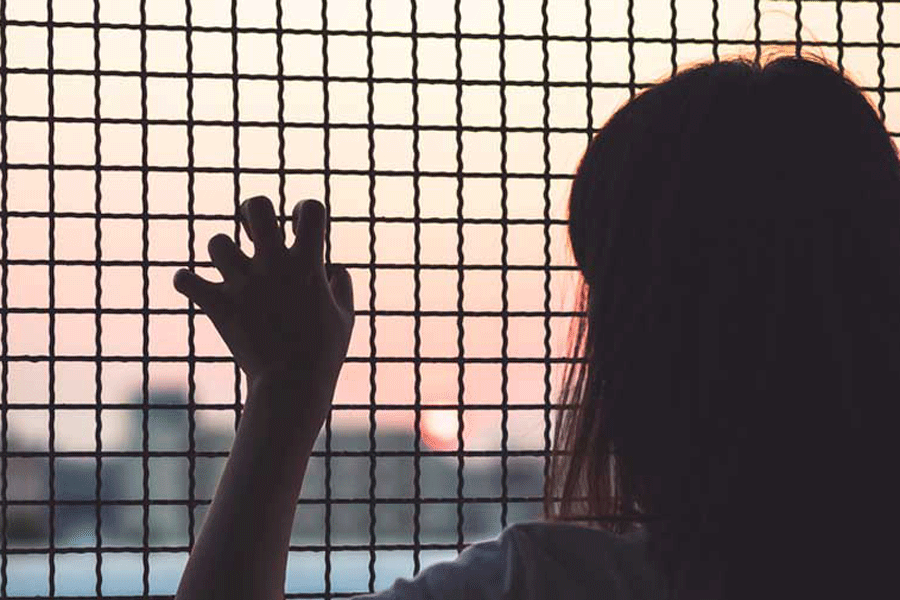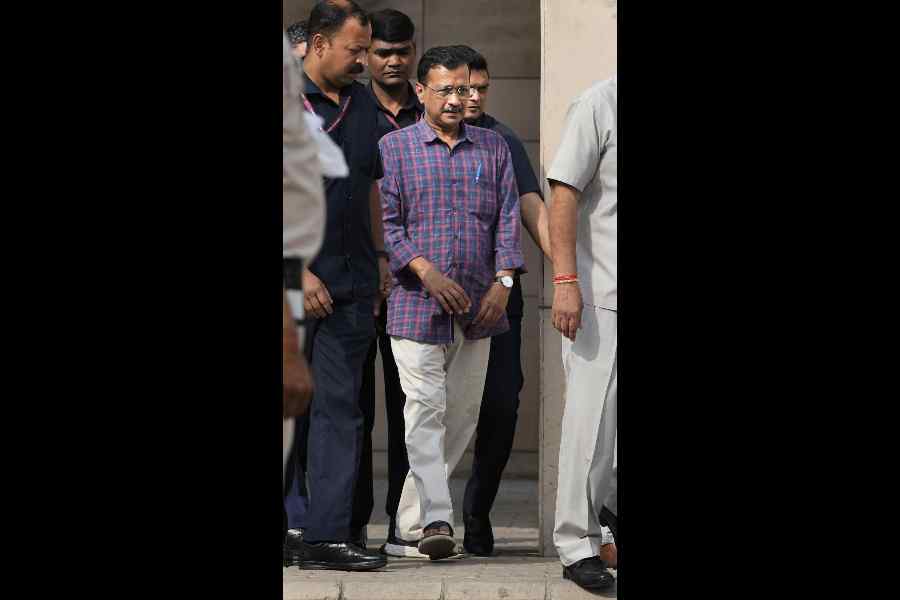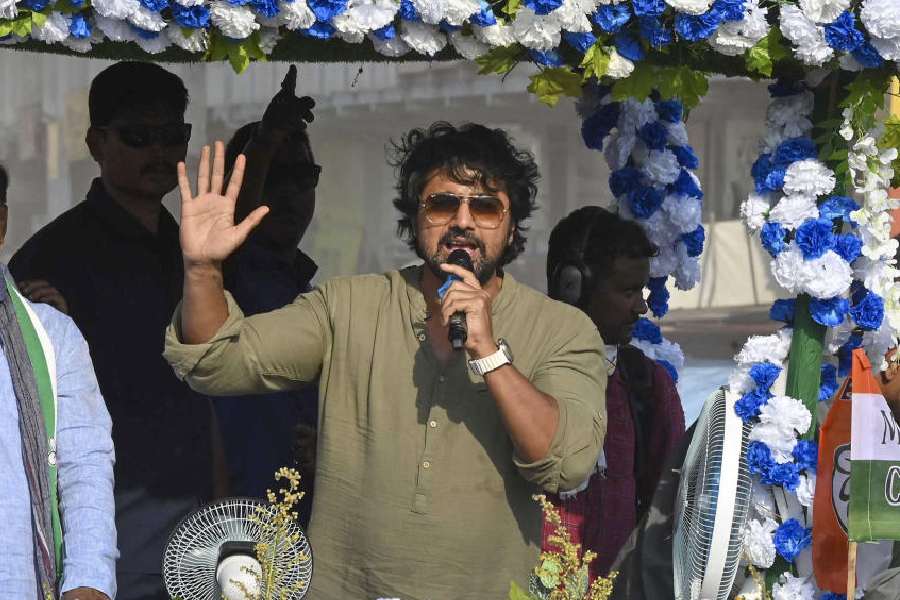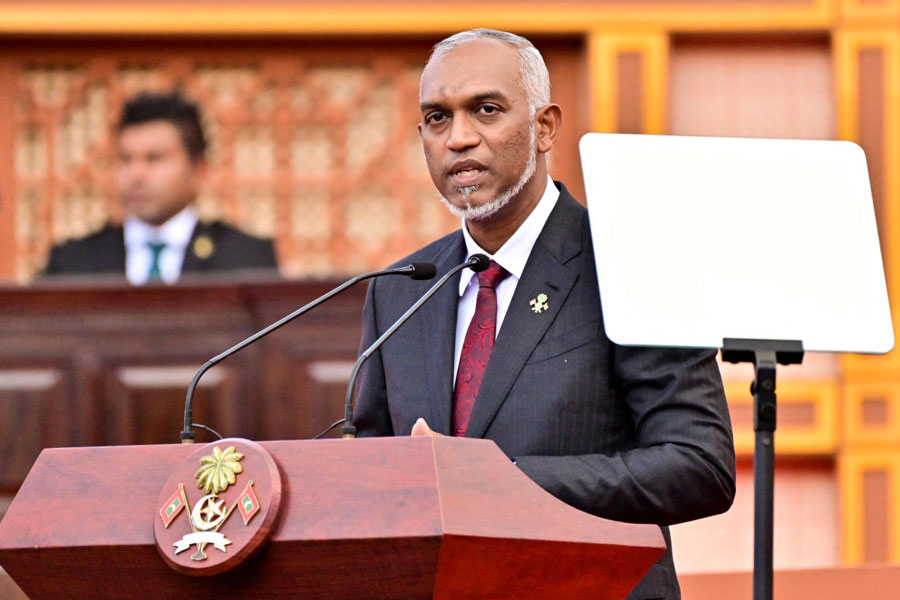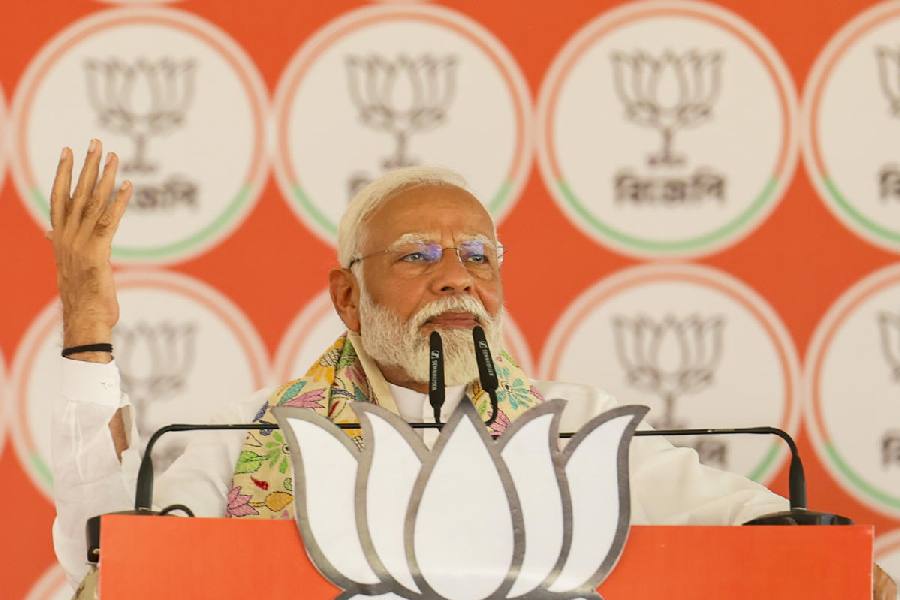A woman must have been “at some fault” if she was trafficked and forced into prostitution, believes a panchayat member.
When a trafficking survivor seeks help, a block-level official sends her to an NGO. He thinks his role ends there.
These were among the findings of a recent survey that explored the government’s role in addressing the mental health of, and stigma faced by, survivors of human trafficking.
Twenty-six government and people’s representatives — from the panchayat, block and district levels — in South 24-Parganas and North 24-Parganas were interviewed in December 2023. The two districts, bordering Calcutta, are the biggest “source markets” for the traffickers.
The study has thrown up several disturbing findings about the role and attitude of officials when it comes to helping trafficking survivors.
“Even people with good intentions, people who want to help survivors, end up doing the opposite,” said Arpita Nath, rehabilitation coordinator with Sanjog, an organisation working on intersectional issues of gender, rights, migration and anti-human trafficking.
Sanjog did the survey and Nath was among those who anchored it.
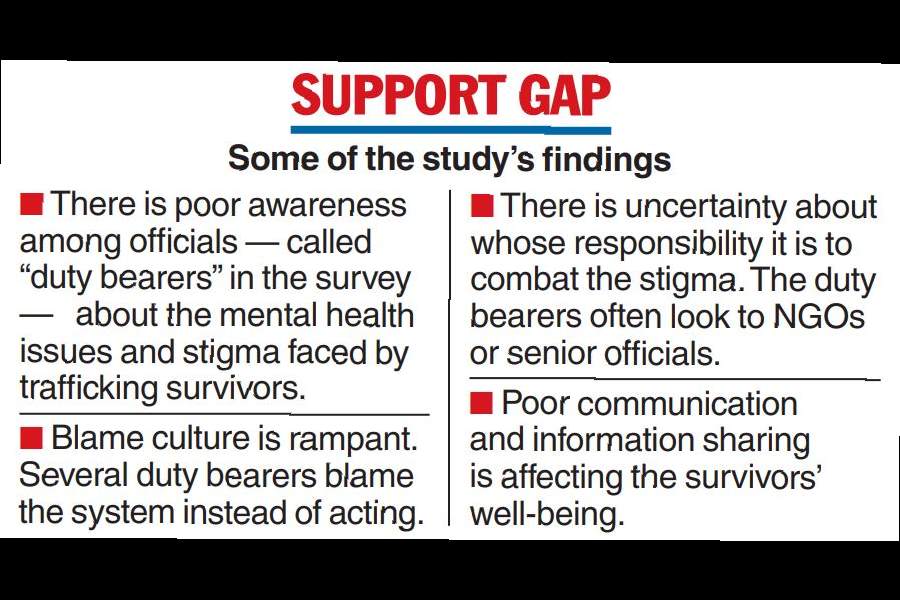
Nath cited the example of a cluster supervisor of self-help groups in North 24-Parganas. Many survivors become part of such groups for a shot at livelihood. They get easier and cheaper access to loans through these groups.
“The cluster head tries to provide counselling to survivors even though he is not qualified to do so. He tells a survivor to forgive and forget. He does not realise that counselling is a specialist’s job,” Nath said.
“He should ideally refer a survivor to a counsellor at the nearest block primary health centre or a psychologist at the sub-divisional hospital.”
A panchayat member in North 24-Parganas told the interviewer that a trafficking survivor cannot only blame others. “She also must have been at some fault,” Nath quoted the member as saying.
A survivor fed up with taunts from neighbours sought help from a panchayat secretary in South 24-Parganas. He gave her a patient hearing and advised her to ignore the catcalls and move on.
Nath said: “The secretary told the survivor that she had his support. But he never confronted the men who harassed her. As a public representative, he should have.”
A block-level officer in North 24-Parganas said he had attended awareness programmes on trafficking conducted by NGOs.
“If a survivor seeks help from him, he sends her to an NGO. He thinks that is what his role is,” Nath said.
Sanjog has in the past conducted similar surveys with survivors and social workers.
“These ‘duty bearers’ (a term used in the survey for people’s representatives and government officials) are supposed to address the issues of mental health and stigma on the ground. That is why we focused on them in the third leg of the survey,” said Veronica Sutapa Gomes, programme director, rehabilitation and economic empowerment, Sanjog.
The Mental Healthcare Act, 2017, recognises trafficking survivors as a group that must receive mental health support and services.
This newspaper has in the past reported how the absence of an institutionalised mental health support system at the block level is hurting trafficking survivors.
Many survivors return to a hostile environment where they have to fight stigma. Not just neighbours, even family members are reluctant to take them back. The survivors are trapped in what psychologists call a “vicious circle of guilt and shame”.
Many of the survivors are vulnerable to anxiety, emotional numbness, memory loss, depression, sleep disorder, post-traumatic stress disorder (PTSD) and a dependence on substance abuse, said social workers.
Even a couple of years ago, many block primary health centres — usually the first go-to point for villagers with serious medical conditions — did not have a counsellor, let alone a psychiatrist or psychologist.
Nath said things had improved. “Most primary health centres have a counsellor. But a lot is left to be done,” she said.

